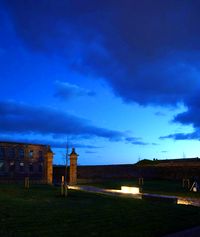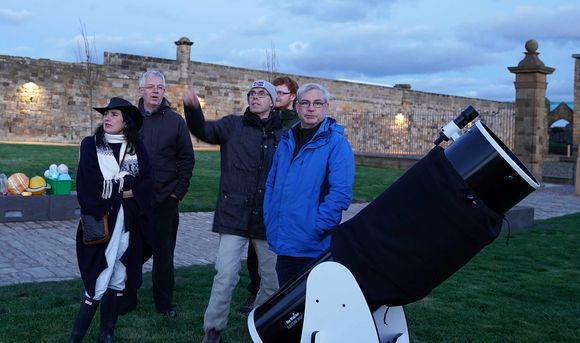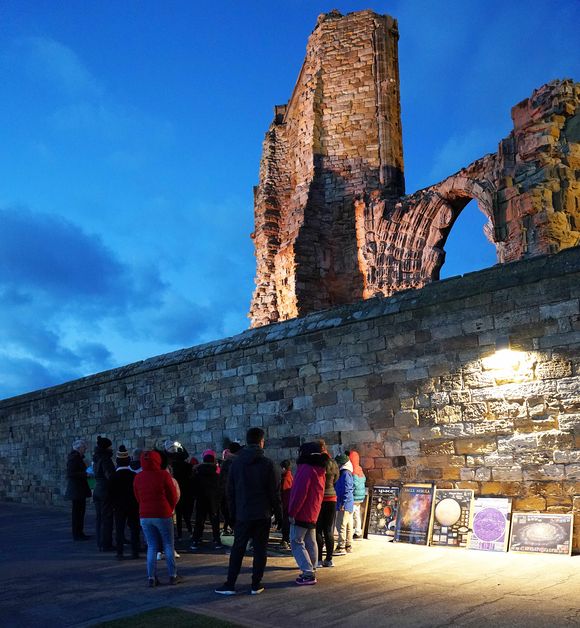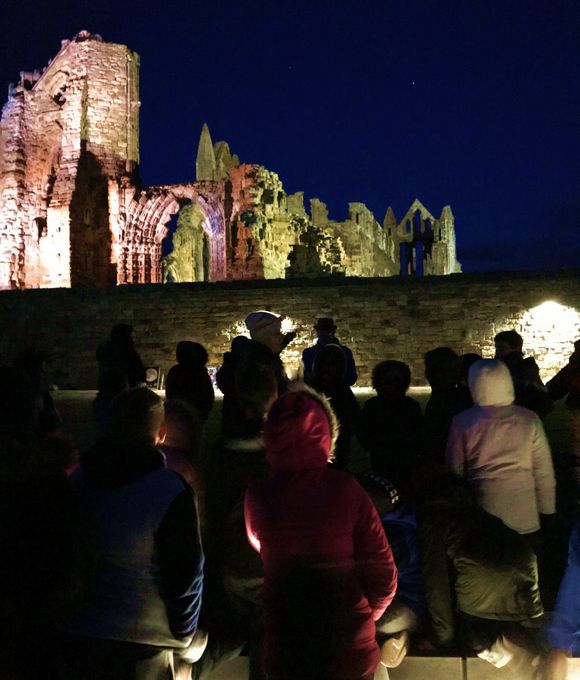 Staying at the Whitby Youth Hostel, this year’s outward bounds party from Ayresome Primary school in Middlesbrough once again brought fine weather with them, even though the forecast originally had been for light or low cloud for much of the week.
Staying at the Whitby Youth Hostel, this year’s outward bounds party from Ayresome Primary school in Middlesbrough once again brought fine weather with them, even though the forecast originally had been for light or low cloud for much of the week.
This turned out to be somewhat off the mark, with our preferred evening (Wednesday 10th) being clear and still. Actually some cloud did come in off the sea, but not enough to really hamper our observations.
Having arrived around 20:00h, it was much easier setting up the equipment on the Hostel approach forecourt area in bright twilight. Libby Lavelle, assistant head teacher of Ayresome Primary School, came out from the hostel to greet us, and after warming tea’s and coffee’s, Libby went back and gathered up the 25 or so pupils indoors and sent them out.

19-Apr-2019: Set-up and cloud-cover assessment
As customary, before any observing commenced, Mark, with assistance from the pupils, demonstrated the scale solar system along the Hostel approach drive, using both the marked string and inflatable planets. The only actual visible planet in the sky, Mars, was pointed out over in the west to the right of Aldebaran.
Five scopes were in use for observations: Andy L’s reflector, Keith’s Dobsonian, Lee’s reflector along with the two Dobsonians Mark had brought. Transport logistics had been a little tricky, but once again Barbara and Mark came to the rescue and were on hand to assist.

The pupils were quite excited to view the waxing crescent moon, and pressed round the scopes eagerly. They soon got the hang of lining up alongside the instruments.
Using the laser pointers, the spring sky constellations, setting winter groups as well as prominent circumpolar stars, were pointed out. For the majority of pupils present it seemed a revelation to be able to trace out the constellations in the sky, which we gathered are barely visible from many areas in Middlesbrough itself.
It also came as a revelation that artificial satellites are visible from the ground, those ‘moving star points’ - not shooting stars as someone thought (alas we didn’t see any of those) but the man made artefacts we have come to rely on for so many hidden aspects of our lives.

19-Ap-2019: Sky Tour in Progress. (Photo by Keith)
One great bonus that evening was the identification of the minor planet (asteroid) Pallas, which lay close by Muphrid in Bootes. Although it only looked like a ‘faint star’, the fact that we knew it would be in that position, at that time, on that date, just by looking at a planetarium program or App on a screen, really did ‘blow’ a few minds.
After a final question and answer session, (many questions and some answers) it was time for the pupils to return into the hostel. We had been favoured with the weather and i think we passed on that favour to the pupils. Libby will let us know feedback from the group once the term recommences. Thanks again to Andy, Keith, Lee and Barbara and Mark for their time.
- Log in to post comments
